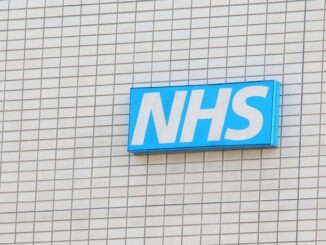
As reported by the British Medical Association, 44% of senior doctors plan to leave health service
The NHS is facing a potential exodus of senior doctors as punitive pay and pensions rules force many consultants to consider quitting, the BMA has warned.
The association’s consultants committee has told the Government the health service could face a ‘tidal wave of resignations’ during the next year, after a survey of consultants in England revealed 44% were planning to leave their roles ‘in some capacity’ in the next 12 months.
The survey, which received close to 8,000 responses (7,774) further found 90% of those taking part considered this year’s consultants’ pay award of four point five per cent to be ‘inadequate’ or ‘completely unacceptable’.
Conducted online between August and September, the survey also revealed 38% of responding consultants said they would either ‘definitely’ or ‘probably’ reduce their contracted hours next year, owing to year-on-year pay erosion and unfair pension taxation.
BMA consultants committee chair Vishal Sharma said the survey’s findings highlight the extent to which the consultant workforce felt demoralised and ignored after years of failure on pensions and pay.
He added, unless action was taken, the situation was a ‘catastrophe waiting to happen’ and called on the government to come to its senses and return to the negotiating table.
He said: ‘These figures make for extremely grim reading. The NHS is already at breaking point and cannot afford to lose any of its staff, never mind facing the prospect of losing nearly half of its most senior doctors.
‘After years of demoralising real-terms pay cuts and chronic staffing shortages, the NHS and its staff are on their knees. The government must urgently demonstrate that it values the medical workforce by taking steps to restore doctors’ pay. This must include reforming the pay review body which rather than being the independent body it was set up to be is constrained by government spending limits and direction via remit letters.
‘The government must also urgently address the pension-tax trap that is forcing doctors to reduce their hours and take early retirement to avoid being unfairly taxed on their pensions.’
The BMA has told the government it has provided the solutions to this problem – demanding that ministers urgently amend the Finance Act to address issues with inflation and negative pension growth, and, in the long term, implement a tax-unregistered scheme, as it did to solve recruitment and retention problems in the judiciary.
The association said this would provide certainty to senior doctors that they can go on working for as long as they want caring for patients, in an unrestricted way, without the worry and complexity around pension taxation.
He added: ‘The goodwill of staff upon which the NHS depends has all but dried up.
‘We urge the government to come to the table and talk to consultants about the changes that are needed before it is too late to stop the drain of doctors from the NHS.’
The BMA has warned that average take-home pay for consultants in England has fallen in real terms by nearly 35% since 2008/09, while the number of senior doctors taking early retirement during the same period has more than tripled, with the average retirement age for consultants in 2020/21 just 59.


Be the first to comment